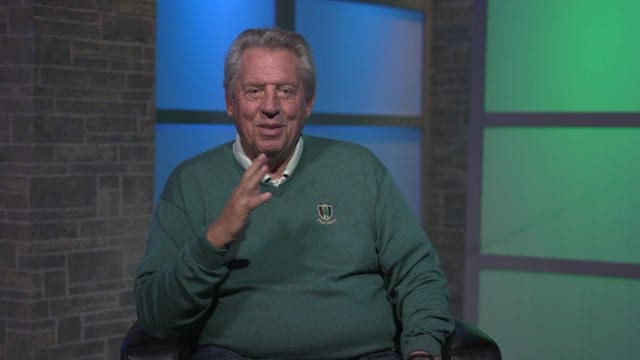
John C. Maxwell explains how visions change based on real world conditions and good feedback.

John C. Maxwell explains how visions change based on real world conditions and good feedback.
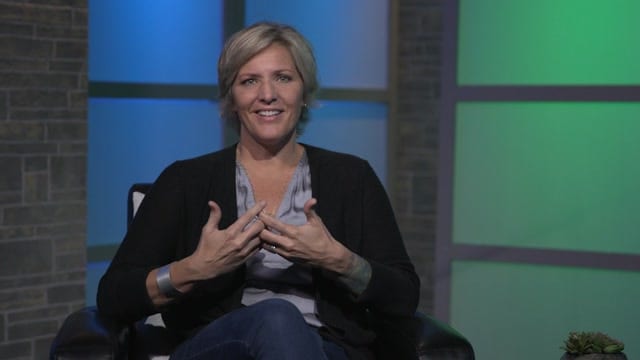
Danielle Strickland helps us understand the ways we can identify leaders who are abusing their power.
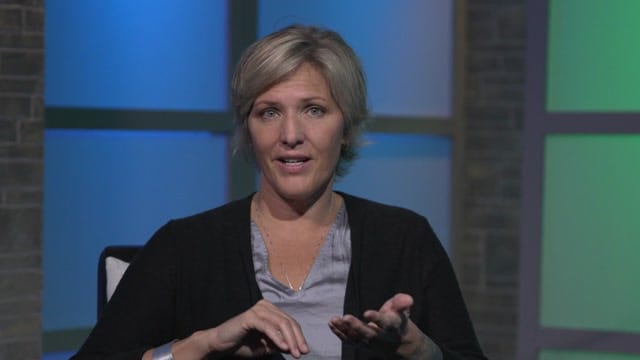
Danielle Strickland provides practical advice for confronting a leader who is abusing power.
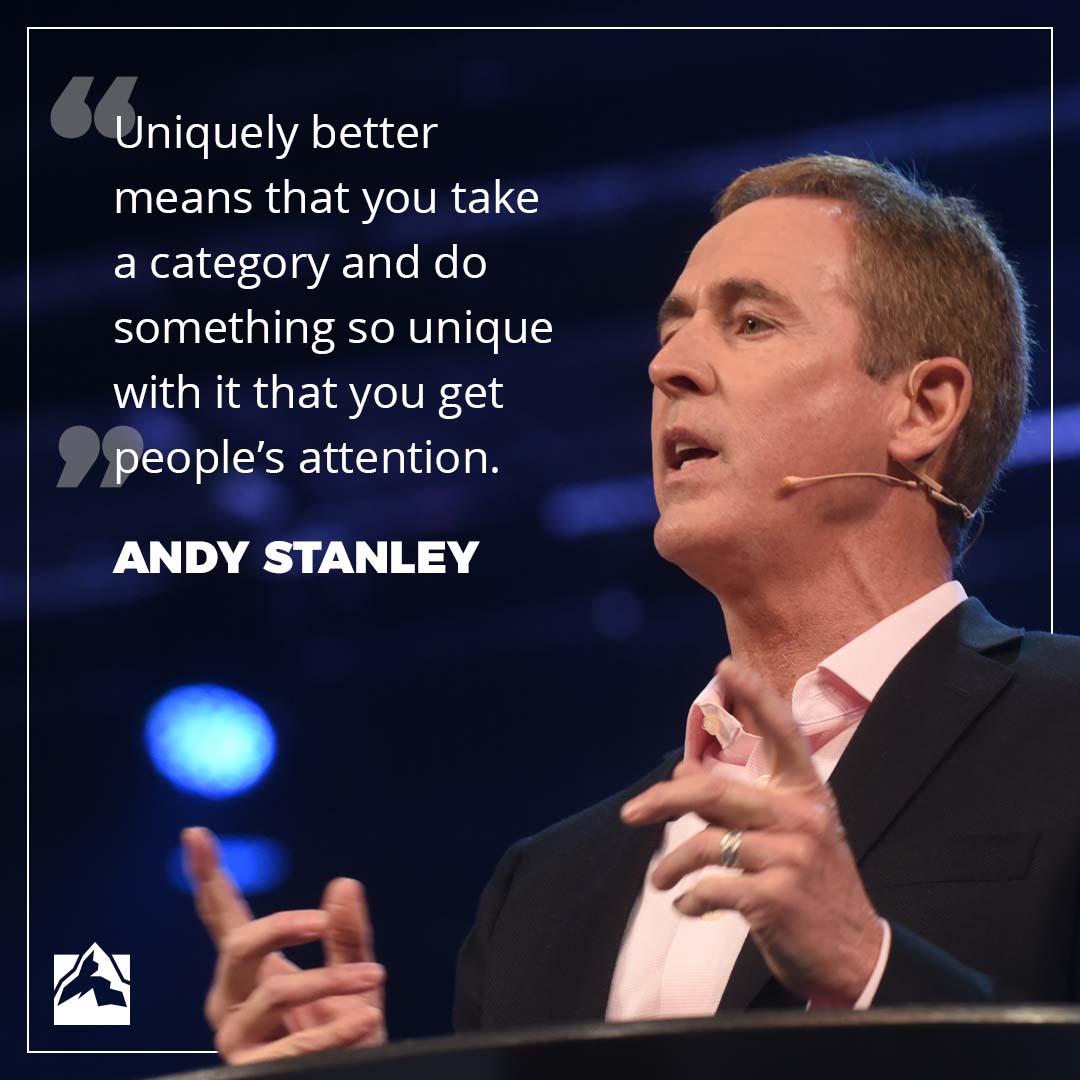
Uniquely better means that you take a category and do something so unique with it that you get people’s attention.
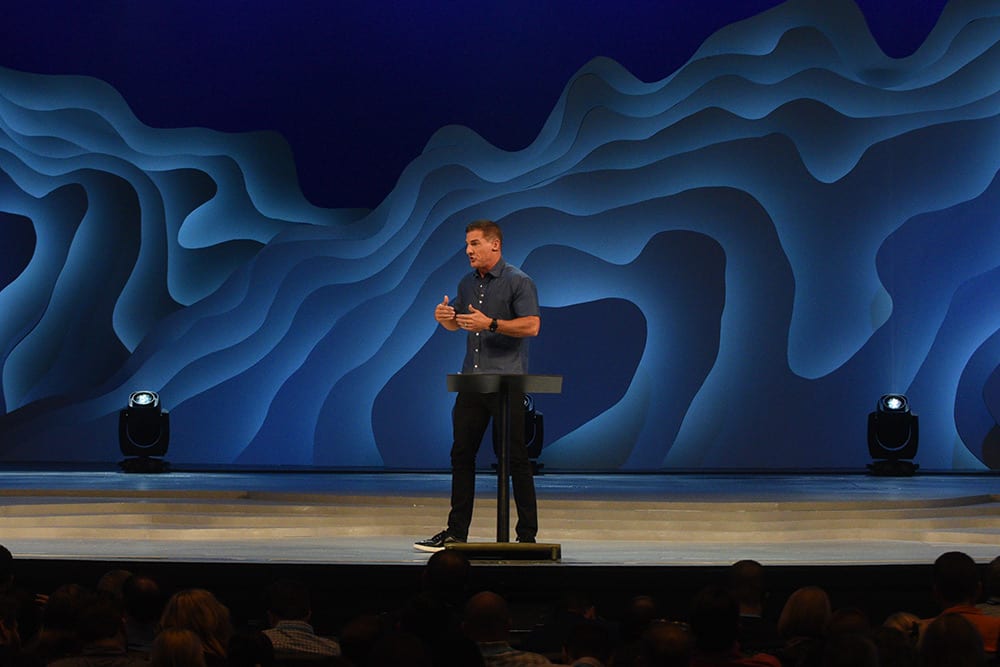
I want to talk to you about leadership and how we look forward, so we can make the appropriate decisions today to lead toward our desired outcome in the future.
Story of the YouVersion App: At Life.Church, Craig’s passionate that everyone should have access to the Word of God. So, they invented a website called YouVersion.com. It failed miserably. Then Bobby Gruenewald told us that Apple was coming out with something called an app. I remember him saying, “It might be significant.” So, we built an app with content from the website and released the same day that Apple released apps. Ten years later, over 1/3 of a billion people have downloaded the free YouVersion app.
How do we anticipate where things are going so we can make decisions today that lead toward what is happening in the future?
Wayne Gretzky, one of the greatest ice hockey players of all time said, “Most players skate to where the puck is, I skate to where it will be.”
The difference between a good leader and a great leader is one who learns to anticipate rather than react.
The life span of your current systems is diminishing as we speak. We need to be able to anticipate what is coming.
What do we need to do as leaders?
A warning: realize that what you know may be completely wrong.
Story of Life.Church. We were on the front-end of an innovative breakthrough in doing multi-site church. We formed strong opinions. If we think we’re experts, we are susceptible to the curse of confidence.
Innovation is seeing what everybody else sees but thinking what nobody else thought.
1. What is the true, current state of your organization?
2. If you were starting now, what are you currently doing that you would not do? And why are you doing it?
3. If you were starting over today, what would you attempt? When are you going to attempt it?
Don’t create what is, create what is supposed to be.
Things are changing. Good leaders react, great leaders anticipate.
Your life is too valuable and your calling too great and your God is too good to waste your life on things that do not last.
You are a leader. With God’s help and by God’s power, leaders change the world.
*Disclaimer: GLS18 Session Notes are only available in the United States*

Story of the Vietnam War. The U.S. won most of the major battles and lost fewer troops. It raises the question: If you can decimate your enemy and win the major battles, how do you still lose the war?
We don’t fully understand the concept of winning and losing.
James Carse, Finite and Infinite Games
• Finite games have known players, fixed rules and agreed-upon objectives.
• Infinite games have known and unknown players, changeable rules and the objective is to perpetrate the game.
Story of Microsoft vs. Apple. At the Microsoft Summit, executives spent the majority of their presentations talking about how to beat Apple. At the Apple Summit, 100% of their executives talked about how to help teachers teach and how to help students learn.
The infinite player:
Leaders are responsible for creating an environment in which people feel they can be their best.
We do not run our best races alone on the track. We run our best in a race when other runners are there to push us.
The pressures around us are overwhelming to focus on the short term, focus on the win, focus on being number one, and to think about ourselves before we think about others.
We can choose to live our lives by finite rules or we can choose to live our lives as an infinite game.
By choosing to lead in the infinite game, we will make a forever impact in the lives of people around us.
*Disclaimer: GLS2018 Session Notes are only available in the United States*
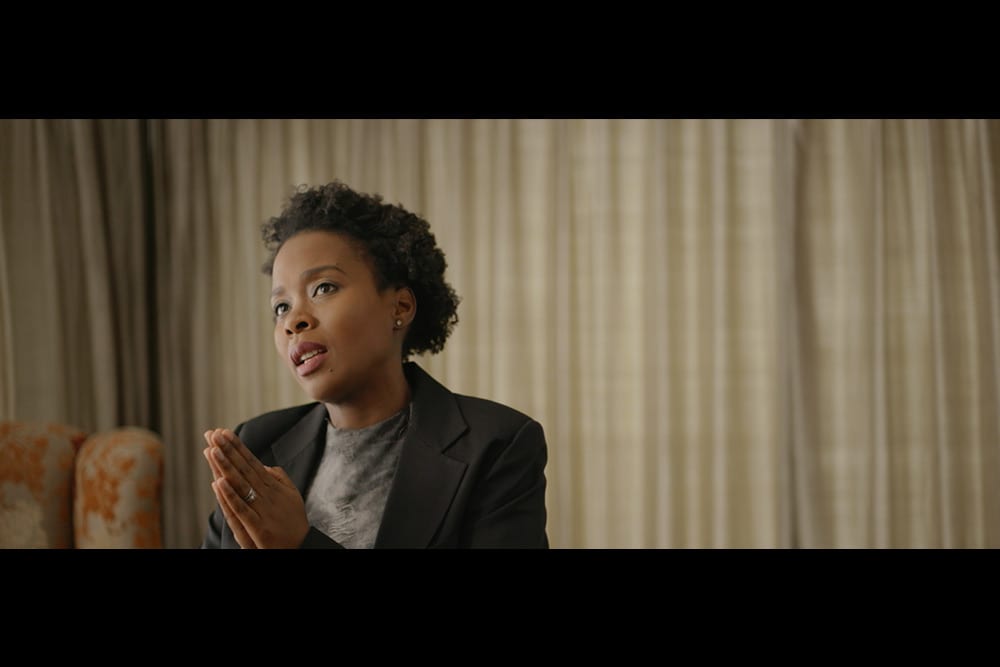
I would like to talk about the downside of leadership – when you fall short as a leader and make mistakes.
Theodore Roosevelt’s Man in the Arena Speech.
Story of Quali Health. We opened our first facility in 2016. Patients were coming in, and we were having great impact. We were able to attract funding and open more facilities. One year later, we started facing challenges around cash-flow and profitability. We needed to lay some people off. People were criticizing my leadership.
I got very discouraged. I entered into a time of introspection and fell victim to discouragement for several weeks. But then, I started to realize there was a path forward.
Be relentless and unwavering on what you want to achieve.
We tend to think that visions from God happen unopposed. But challenges are part of the purpose-filled journey. Challenges should spur us on.
Based on statistics, 90% of companies fail. It makes me wonder if the high failure rate of start-ups might be fueled by leaders who did not fully anticipate how hard it would be.
I want to inspire people to keep going – even when they face dark points – because there are amazing things that need to be done.
*Disclaimer: GLS18 Session Notes are only available in the United States*

I am convinced that the greatest battles we ever fight are the ones within us. And if we can figure out how to conquer the darkness inside, we can move forward into the light.
You’ve been created by God who gives you intention and purpose and significance. I have known too many people with so much potential. But their lives never lived up to what everyone else saw in them.
We need to ask the question, “How can I become the person I was created to be?”
And I wonder how many of us have confused those moments in our life—we thought we failed, but what we really did was quit. We’ve settled for much less than the life we are supposed to live.
Most of us live our lives as if we are going to live forever. We are all dying. We don’t get days back. We need to treat each day like they are sacred.
Some of you are living your life in fear. Freedom is on the other side of your fear! Too many people say they have faith, but they are paralyzed by fear.
When you put death behind you, life is the only thing in front of you.
If you don’t deal with the paralyzing power of fear in your life, you will never live the life you were created to live.
If you don’t deal with the paralyzing power of fear in your life, you will never live the life you were created to live.
Leadership is not about living in the confines of your fear but it’s about facing them and running through them. Greatness is on the other side of our pain.
I live for this purpose: I want people who are so afraid to get up and live life again. I want them to know that their pain was not the limit of their life. You need to go through pain to step into greatness.
Jesus did not come to give us a way out of pain. He came to give us a way through pain. Trust that God has something extraordinary on the other side of your wounds and pain.
People want to define us by our worst moments. But God does not define you by your worst moments. He sees in you a greatness that you cannot see in yourself.
I’m standing in front of you as a person who knows failure after failure after failure. Faith doesn’t make life easier. Faith makes you stronger.
Faith doesn’t make life easier. Faith makes you stronger.
Forty years ago, I had a life-changing encounter with the creator of the universe. I never thought it was possible. But I came to know that God had stepped into human history in the person of Jesus. I didn’t care about heaven. I didn’t care about hell. I was terrified that I would live and die and never do anything meaningful. I was terrified that my dad was right—that I was nothing but average.
Take the arrow and strike and strike and strike and strike and strike.
And when you take your last breath, let your quiver be empty. And let your last arrow be in your hand.
*Disclaimer: GLS18 Session Notes are only available in the United States*
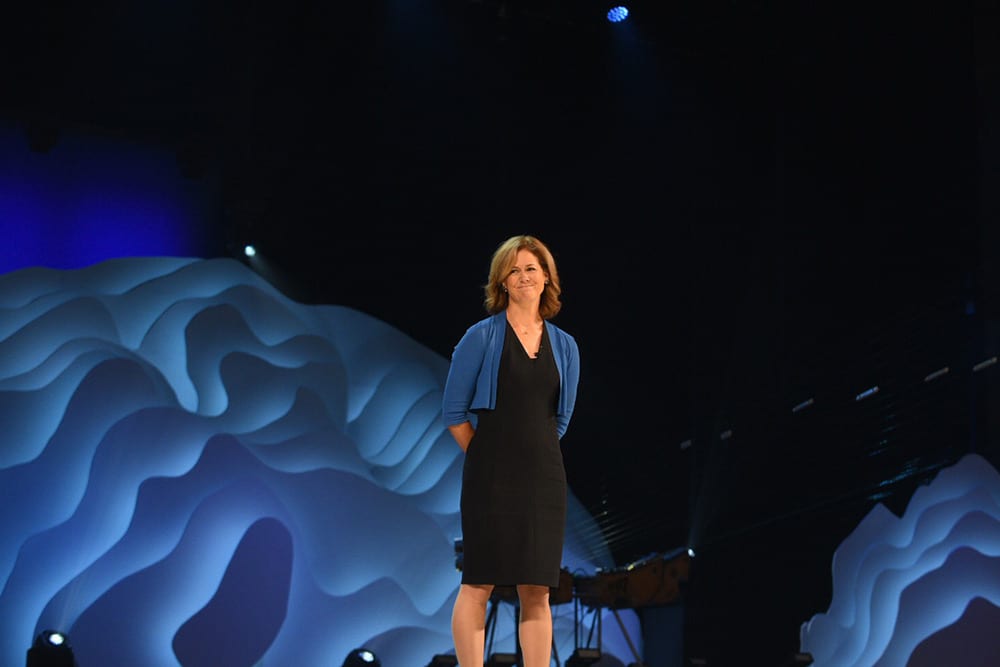
We feel like conversations are not supposed to be difficult. But every one of us has difficult conversations in our lives. Difficult conversations are a big part of leadership.
The presence of difficult conversations indicates:
Difficult conversations are a big part of leadership.
We need to look beyond what people are actually saying to one another. We need to become aware of our internal voice.
In difficult conversations, our internal voices are turned up to full volume.
Drama: Monisha and Paul are discussing plans for a client meeting. Paul wants to book an expensive experience to land the client. Monisha is concerned about the budget.
The real issue is that they need to change. People don’t respond well to being lectured, blamed and fixed.
The other person also has an internal voice. Their internal voice is focused on what they are right about.
So what do we do?
As human beings, we need each other. Sometimes we misunderstand each other and let each other down. But we also need each other to learn from those mistakes.
As human beings, we need each other. Sometimes we misunderstand each other and let each other down. But we also need each other to learn from those mistakes.
Story of seminary students and a man who needed medical attention. They were told they needed to give a speech, starting in five minutes. Only 10% stopped to help the man. When the students had 20 minutes, 50% stopped.
We need to make time in our busy lives to better handle our most important relationships.
Leadership is about showing someone a better future that we will co-create together.
*Disclaimer: GLS18 Session Notes are only available in the United States*
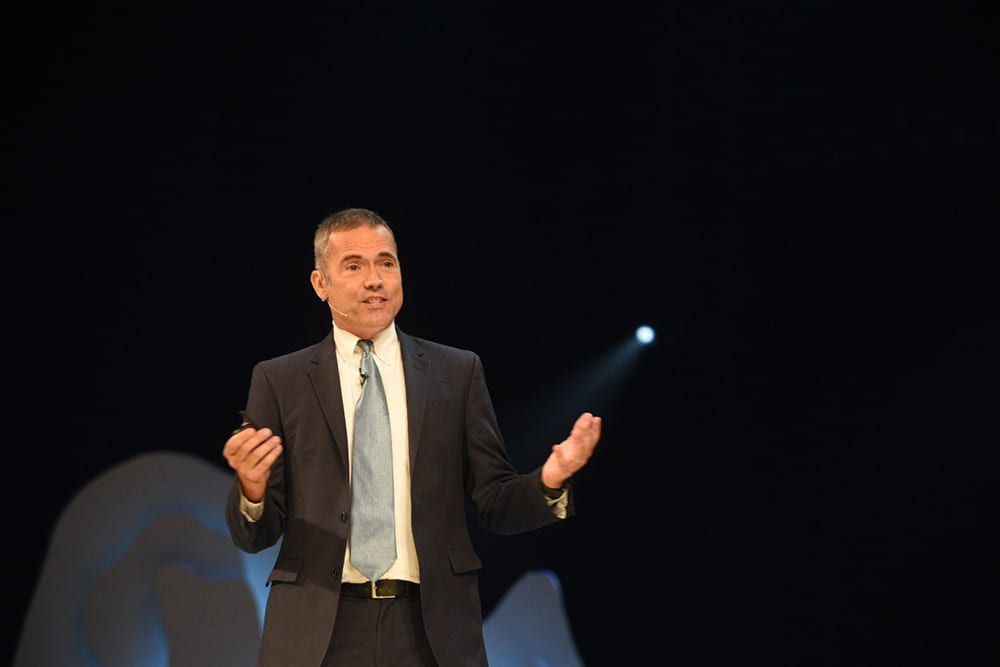
Story of a mis-translation in China: During a speaking trip in China, David learned that his interpreter was not translating his humorous first illustration. His humor did not work cross-culturally. Instead, the interpreter was cueing the audience when to laugh.
Often our mistakes are often the best tools for learning how to improve our cultural intelligence.
Cultural Intelligence (CQ) is the capability to work effectively in culturally diverse situations.
Culturally intelligent leaders respond with curiosity when confronted with a situation different from their experience.
Culturally intelligent leaders respond with curiosity when confronted with a situation different from their experience.
Culturally intelligent leaders have a working understanding of the similarities and differences that exist between different groups.
Different interpretations of the prodigal son story. Mark Powell’s research found different interpretations about why he ended up in the pig pen. All came from the story but the emphasis came from culture.
Culturally intelligent leaders channel their curiosity into a working strategy.
Eventually, we need to make decisions based on our multi-cultural awareness.
Video of Caucasian American male meeting an Asian American female on a walking path.
If your diversity training simply focuses on teaching people cultural differences, you may make the situation worse.
Leaders with high CQ Strategy know that cultural differences require different approaches.
Culturally intelligent leaders have the ability to adapt when working in multi-cultural contexts
Questions to ask:
Starbucks Example. When they first opened in China, they made the stores look like traditional Chinese tea houses. By adapting too far, they undermined the unique value they were trying to bring.
We’ve all heard that diverse leadership teams increase innovation. It’s not true. Diverse teams do not automatically create more innovative solutions. True innovation requires diversity plus high cultural intelligence.
Diverse teams do not automatically create more innovative solutions. True innovation requires diversity plus high cultural intelligence.
Assessing Your Cultural Intelligence (CQ).
Go to www.culturalQ.com/gls for a complimentary self-assessment .
Everyone can improve their CQ.
Journal entries from a U.S. university student traveling to Peru. After reading culturally insensitive passages, David revealed that it was his own journal. He didn’t grow up being culturally intelligent, but now he’s speaking at the GLS on cultural intelligence.
The world desperately needs diverse leaders with compassionate hearts, driven by curiosity, who can effectively serve and make a difference in an increasingly polarized world.
*Disclaimer: GLS18 Session Notes are only available in the United States*
“We welcome and encourage comments on this site. There may be some instances where comments will need to be edited or removed, such as:
If you have any questions on the commenting policy, please let us know at heretoserve@globalleadership.org”
Recent Comments